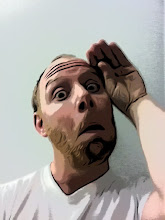"The Book of Lost Things"
by John Connolly
 This book was great. I have to admit I knew nothing about the author or the book itself before I picked it up. This book was purchased solely on the appearance of the cover. I loved it and I'm glad I bought it.
This book was great. I have to admit I knew nothing about the author or the book itself before I picked it up. This book was purchased solely on the appearance of the cover. I loved it and I'm glad I bought it.This is a coming of age story, and based on the reading difficulty level, it is probably aimed for an adolescent audience. That dosen't mean it was childish or dumb in content. (The Harry Potter series is aimed at younger readers and I think J. K. Rowling is a more intelligent writer than Dan Brown is.)
The book is kind of a jumble of a lot of different fairy tales and classic childrens stories. Think of it as "The Wonderful Wizard of Oz" crossed with "The Lion, The Witch and the Wardrobe" crossed with "Alice's Adventures in Wonderland". (These are three amazing books in my opinion.) It's also very much like the Fables comic book series in the best of ways - random cameos in ways you wouldn't expect.
I would easily recommend this book for fans of magic or fairy tales, or anyone who isn't too serious about a good read. This book will definitely be getting a decent spot on the (as-yet-unbuilt) book shelf.


